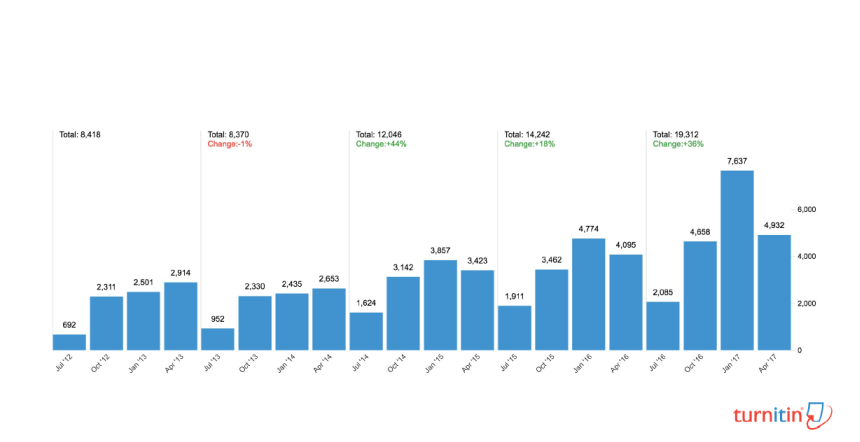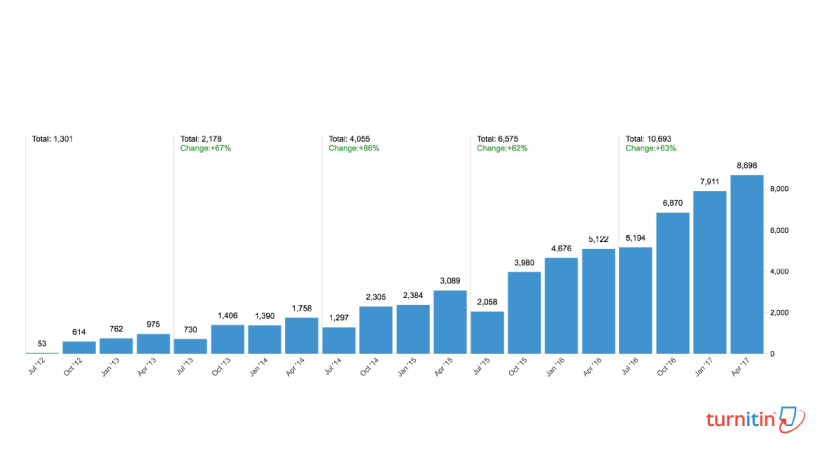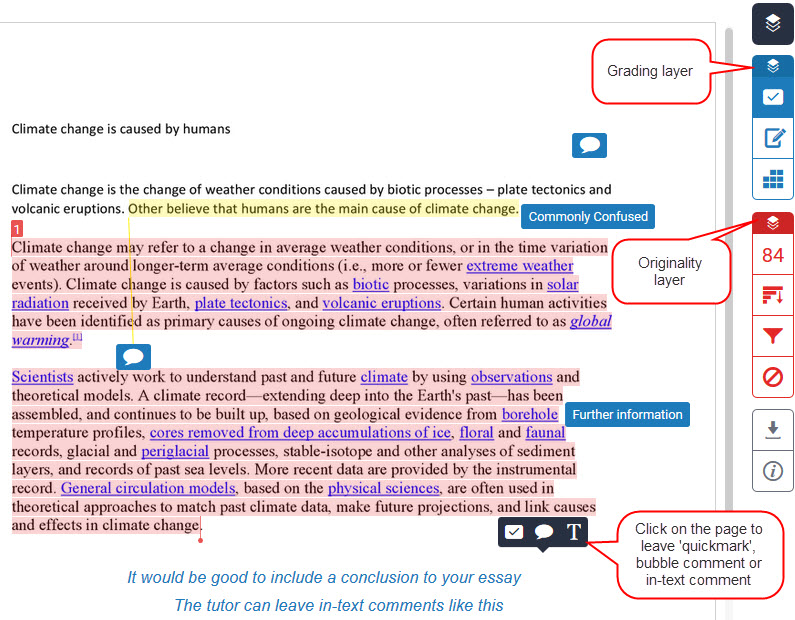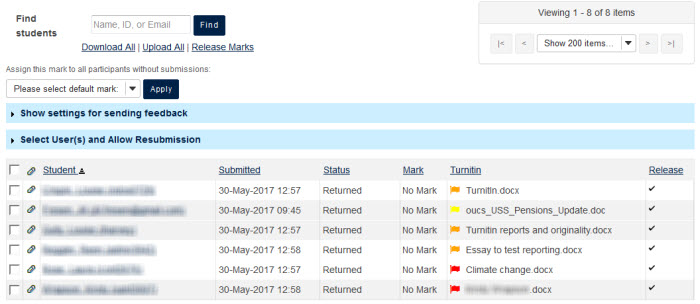The annual Turnitin User Summit was held in Newcastle on 19 October 2017. As a result of recent corporate changes in the Turnitin organisation, there is a new USA executive management team: Marc Daubach (Chief Executive Officer), Ron Park (Chief Technology Officer) and Bill Loller (Head of Product Management). They have restructured the organisation with a view to improving efficiency and responsiveness. The team gave presentations outlining their new approach as a global company, their intention to engage more with the UK HE sector (through the Heads of eLearning Forum – HeLF), and plans for a forthcoming overhaul to the underlying technical architecture of Turnitin.
Kerr Gardiner (formerly Head of Learning Technology & Media Production at the University of Glasgow) gave a presentation outlining seven themes that emerged from his recent consultation with 14 UK universities, including University of Oxford. Oxford’s Technology-Enhanced Learning (TEL) team continues to engage with Kerr, by completing a survey for HeLF members and participating in focus group activities.
Our TEL team will also study the new report developed by the Quality Assurance Agency (QAA), to see how it may inform the University’s policies and practice. The report recommends that institutions should provide early information to students, engender a positive focus on academic integrity and consider blocking questionable websites.
As a company, Turnitin appears to be putting more time and resources into improving customer support and reducing response times to queries from users. We have a dedicated account manager, Jamie Whitehead, who came and gave a presentation to our local Turnitin User Group earlier in 2017. Their help desk reports that response times (from a human help agent) are now 30 minutes instead of the previous 5 hours.
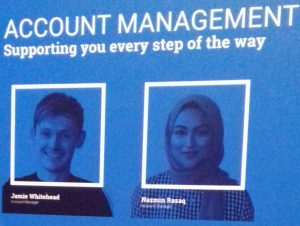
Their product development team are working on enhancements to the Similarity Report, checking the originality of computer code, and how to use machine learning and forensic linguistics to detect instances of ‘contract cheating’ – that is, where a student has contracted someone to write their assignment for them. Universities should not ignore possible plagiarism that might be taking place amongst their students. In 2015, the Sydney Morning Herald uncovered a major case of contract cheating and the same newspaper continues to monitor and report on the issue.
Turnitin is working on a completely new cloud platform that should improve speed, power, flexibility, accessibility and security. The key enabler is ‘redwood architecture’ and active development on the platform will begin in January 2018. The new system will offer a brand new version of Peer Review and will enable what the UK sector has been requesting for a long time: multi-actor workflows including double marking and double-blind marking.
Oxford University has offered to talk with Turnitin’s researchers, to discuss our needs and processes, given the fact that we use both Turnitin and the sister product (iThenticate) – Turnitin is keen to understand more about this unique use case and to consider our needs in their new version. During this consultation, they will show us some of their new prototypes currently under development.
Contact the Turnitin support team at Oxford University: turnitin@it.ox.ac.uk



